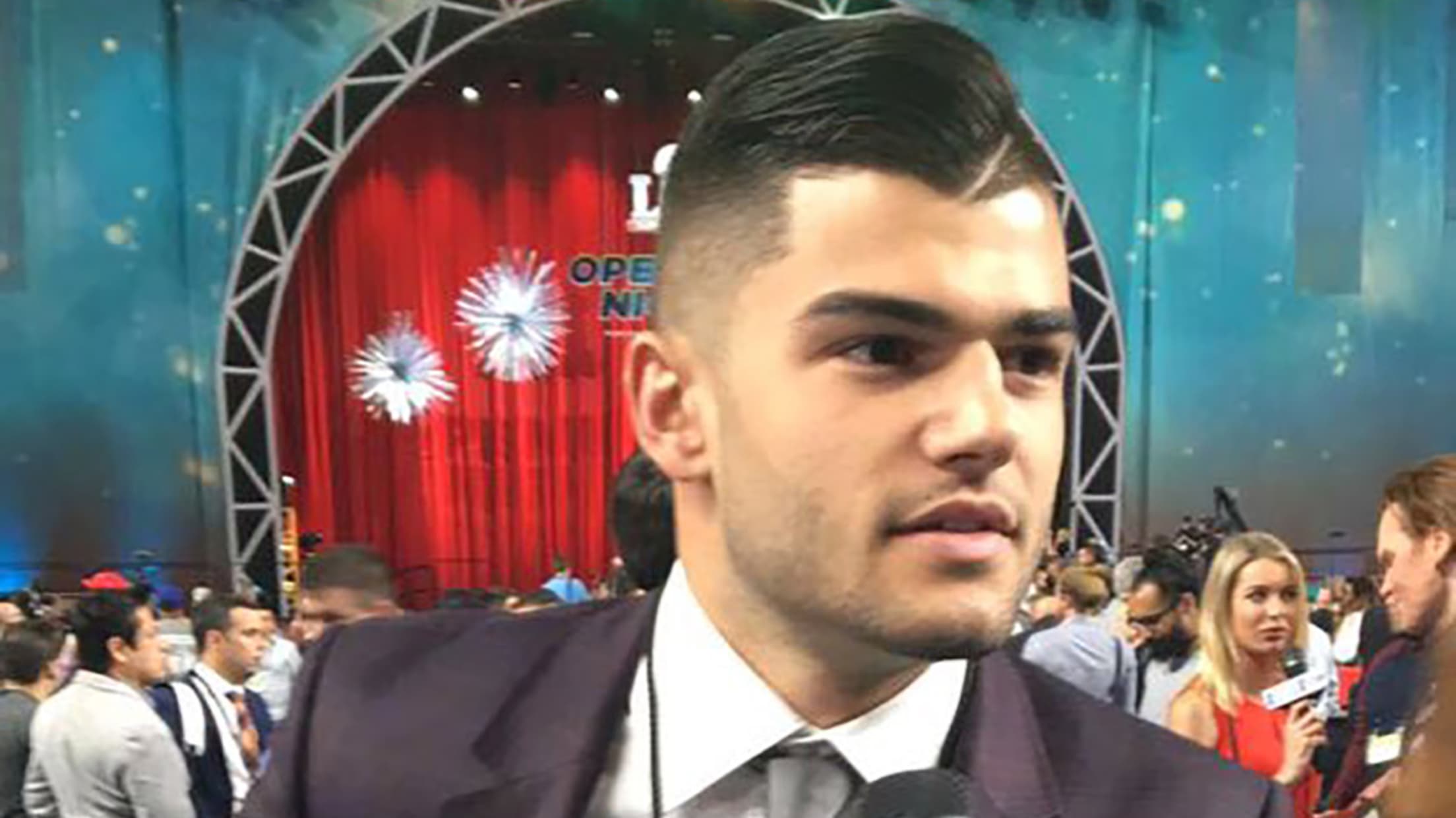Socks, Doves and Beaneaters: The deep baseball connection between Boston and Atlanta

On Sunday night, the Atlanta Falcons will meet the New England Patriots in Super Bowl LI. It will mark just the 14th game ever between the two teams, and the very first in the playoffs. But while the cities don't have much of a history on the gridiron, they're inextricably intertwined on the diamond -- bonded by the birth of the game as we know it and the oldest franchise in major American sports.

For as much history as Fenway Park holds, the story of baseball in Boston doesn't begin with the Red Sox -- well, technically it does, but not the red socks you're thinking of.
The game first came to Beantown thanks to Ivers Whitney Adams, a twine magnate (seriously) who loved baseball and was dedicated to bringing it to his hometown. Luckily for him, some noted baseball pioneers happened to be in need of a job.
Harry "Father of Professional Baseball" Wright's Cincinnati Red Stockings, America's first fully professional baseball team, had voted to dissolve following the 1870 season, leaving Wright and his players in search of a new home. Adams pounced, inviting Wright, his brother George and two teammates to Boston to form the Boston Red Stockings. The team became a charter member of the National Association of Professional Base Ball Players -- renamed the National League in 1876 -- in 1871. And, thanks to stars like pitcher Al Spalding (of Spalding Sporting Goods fame), baseball's first dynasty was born: Boston won six of the league's first eight pennants, including in 1875, when they won 20 straight games and all 38 of their home contests.
They were dashing. They were dominant. They had truly mind-boggling mustaches:

Alas, the good times couldn't last forever. As the National League expanded and the newly formed American League established a club of their own in Boston, the Red Stockings hemorrhaged talent. The team lost 100 games each year from 1909 to 1912, and never really recovered.
The team went through all kinds of nicknames in the ensuing years, from the logical -- Rustlers, an aborted pun on owner William Hepburn Russell's last name -- to the not so logical: after removing all traces of red dye from their white uniforms for fear it would cause wounds to become infected, the team was briefly known as the Doves.
Eventually the franchise settled on the Braves thanks to new owner James Gaffney's ties to New York political machine Tammany Hall, whose symbol was an Indian chief.
But the name didn't bring any better luck on the field, and -- despite the Miracle Braves' run to the 1914 World Series title -- the team was beset by constant financial struggles. (They even acquired Babe Ruth from the Yankees to serve as player/VP/assistant GM in 1935, but he'd be retired by July.) As Boston became more and more of a Red Sox town, relocation rumors began to swirl.

No one figured that Milwaukee would be the Braves' landing spot. Boston's Triple-A affiliate for years, Braves owner Lou Perini had promised to help find the city a Major League team, and most assumed it would be the struggling St. Louis Browns. But, after a disastrous 1952 campaign that saw an average home attendance of around 3,600, Perini had a change of heart: He decided that two teams in Boston was no longer tenable, and the Braves left for Wisconsin.
Thanks to some guys named Hank Aaron and Eddie Mathews, the Braves had a great run in Milwaukee, never posting a losing record and capturing the 1957 World Series over the Yankees in a thrilling Game 7. But Perini, looking to get out of debt, sold the team following the 1961 season, and the new Chicago-based owners immediately set about looking for larger media markets. Unsurprisingly, attendance soon plummeted, dropping from a high of 2.2 million in 1958 to just 777,000 by 1963, despite a team featuring Aaron and 23-game winner Warren Spahn.
By that point, the writing was on the wall: The Braves were on the move again, this time to Atlanta -- a fast-growing city with a new, $18 million multipurpose stadium.

The rest, as they say, is history: Media magnate Ted Turner bought the franchise in 1976, and his, uh, hands-on ownership soon made waves. (Highlights included illegally appointing himself manager and trying to convince pitcher Andy Messersmith to adopt the nickname "channel" because his No. 17 coincided with the Turner-owned TBS, which broadcasted Braves games.)
Atlanta struggled through the '80s, but with the drafting of Chipper Jones in 1990 and the hiring of John Schuerholz as general manager in 1991, everything changed. The Braves won the NL East 14 of 15 times from 1991-2005, including a World Series title in '95, while the three-headed monster of Greg Maddux, Tom Glavine and John Smoltz won six NL Cy Young Awards in the '90s. (And just think: They almost picked up Barry Bonds along the way.)
While Boston never got to see any of that success, don't feel too bad. We hear they made out OK in the end. And thanks to their respective football teams, the two cities will get to reintroduce themselves on Sunday.





